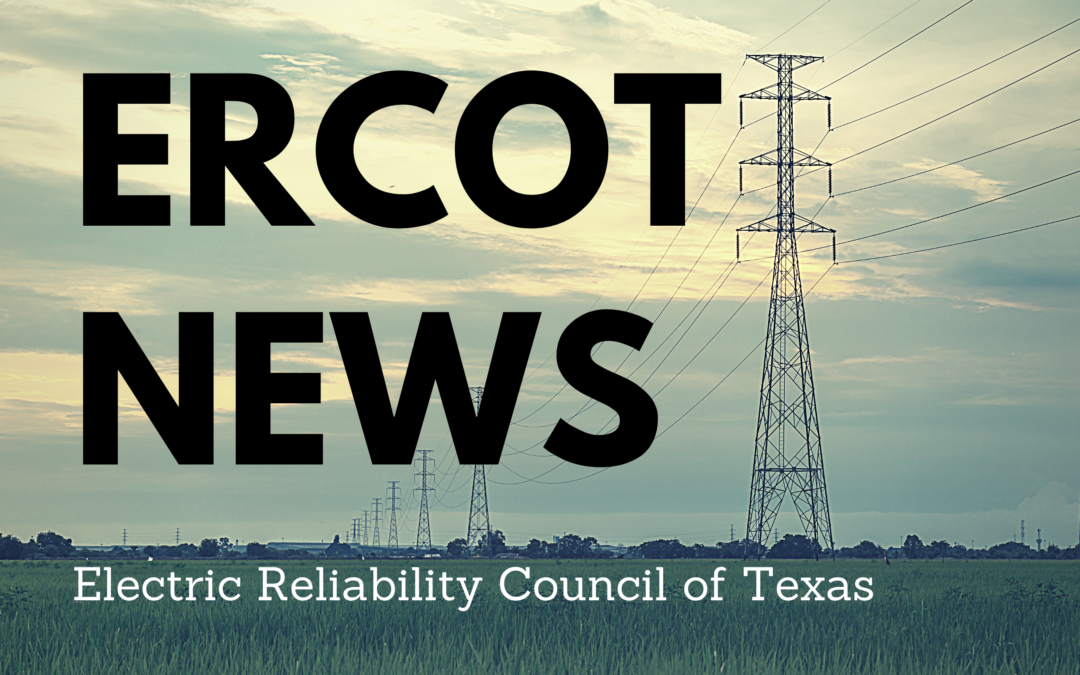The changes drew near unanimous opposition from the electric industry, consumer and environmental stakeholders that historically help set policy at ERCOT.
________________________________________________
ERCOT stakeholders had their supervisory authority significantly reduced under bylaw changes recently adopted by the organization’s board and the Public Utility Commission of Texas.
 Initially proposed in September, the changes had drawn near unanimous opposition from ERCOT’s “Corporate Members” — that is, the electric industry, consumer and environmental stakeholders that historically help set policy at ERCOT. However, the change counted with support from PUC chair Peter Lake and other PUC commissioners, who claimed it comported with the spirit of 2021 legislation pertaining to ERCOT governance.
Initially proposed in September, the changes had drawn near unanimous opposition from ERCOT’s “Corporate Members” — that is, the electric industry, consumer and environmental stakeholders that historically help set policy at ERCOT. However, the change counted with support from PUC chair Peter Lake and other PUC commissioners, who claimed it comported with the spirit of 2021 legislation pertaining to ERCOT governance.
The ERCOT board and the PUC adopted the changes during parallel votes on December 20th.
The Background
ERCOT, also known as the Electric Reliability Council of Texas, is a quasi-governmental, non-profit corporate organization that oversees the state’s primary power grid. The organization’s bylaws historically have assigned certain governance responsibilities to its board of directors and other responsibilities to its “Corporate Members,” i.e., its stakeholder membership.
The bylaws previously stipulated that any change to the bylaws themselves must receive approval from both the organization’s Corporate Members and the ERCOT board. Under the December 20 decisions, only the ERCOT board will have a say over ERCOT bylaws, with oversight by the PUC.
Stakeholders United in Opposition
In comments filed last year in advance of the December decision, generation interests, industrial consumers, commercial consumers, transmission and distribution utilities, retail electric providers, environmental and other ERCOT Corporate Members expressed varying degrees of opposition to the bylaw changes.
For instance, one group of 27 Corporate Members that includes generators, municipally owned utilities, cities and electric cooperatives jointly filed comments warning that the changes would have a “chilling effect” on ERCOT’s ability to maintain grid reliability. Another group, the Texas Industrial Energy Consumers, noted that stakeholder involvement at ERCOT “ensures that policies are thoroughly vetted … from all sides.” TIEC said the bylaw change would sacrifice this benefit.
By contrast, PUC commissioner Will McAdams said the new oversight arrangement is similar to that which the Federal Energy Regulatory Commission possesses over regional grid operators. McAdams likewise said the change will remedy inefficiencies in ERCOT’s governance processes.
Membership Rules
Membership in ERCOT is open to any entity that either operates in the ERCOT region or represents consumers within the ERCOT region. Under the previous rules, these “Corporate Members” had the right to vote on matters submitted to them, such as the bylaws, and also participate in the selection process for the Technical Advisory Committee, which is a key committee that advises the ERCOT board of directors. As adopted on December 20, the only remaining right of the Corporate Members is to elect TAC members.
The ERCOT board and the PUC adopted the bylaw changes in back-to-back votes during a single ERCOT meeting. That, in itself, is seen as an unusual move: ERCOT watchers say it may be the first time that the PUC has taken formal action during a ERCOT board meeting.
The Texas Industrial Energy Consumers group and several other ERCOT market participants have filed motions at the PUC asking for the agency to reconsider the bylaws decision. The PUC so far has failed to address the motions. The motions can be found at the PUC website, under Docket No. 54444.

